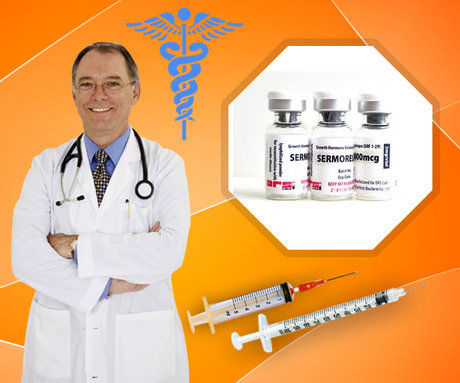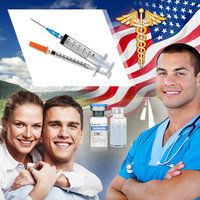Introduction
Testicular autoimmune disorders represent a complex and often underdiagnosed category of health issues affecting American males. These disorders, characterized by the immune system mistakenly attacking testicular tissue, can lead to significant morbidity, including infertility and chronic pain. This article delves into the prevalence, pathogenesis, and therapeutic approaches for managing these conditions, aiming to enhance awareness and understanding among healthcare professionals and patients alike.
Prevalence of Testicular Autoimmune Disorders
The prevalence of testicular autoimmune disorders in the United States remains challenging to quantify due to underdiagnosis and misdiagnosis. However, studies suggest that these conditions may affect a significant subset of the male population. For instance, autoimmune orchitis, a type of testicular autoimmune disorder, has been reported in approximately 3% to 5% of infertile men. This statistic underscores the need for increased vigilance and screening among males experiencing fertility issues or testicular symptoms.
Pathogenesis of Testicular Autoimmune Disorders
The pathogenesis of testicular autoimmune disorders involves a breakdown in immune tolerance, leading to an aberrant immune response against testicular antigens. This can occur due to various triggers, such as infections, trauma, or genetic predispositions. The blood-testis barrier, which normally protects sperm and testicular cells from immune attack, may be compromised, allowing autoantibodies and immune cells to target these tissues. Research has identified several autoantibodies, including those against sperm proteins and testicular enzymes, as key players in the development of these disorders.
In addition, genetic factors play a crucial role in predisposing individuals to autoimmune conditions. Certain human leukocyte antigen (HLA) haplotypes have been linked to an increased risk of developing testicular autoimmune disorders. Understanding these genetic associations can aid in identifying at-risk individuals and tailoring preventive strategies.
Therapeutic Approaches to Testicular Autoimmune Disorders
Managing testicular autoimmune disorders involves a multifaceted approach, focusing on both symptom relief and immune modulation. Corticosteroids, such as prednisone, are commonly used to suppress the immune response and reduce inflammation. These medications can be effective in alleviating symptoms but may come with significant side effects, necessitating careful monitoring and management.
Immunosuppressive agents, such as azathioprine or cyclosporine, may be employed in cases where corticosteroids are insufficient or contraindicated. These drugs work by dampening the overall immune response, which can help prevent further damage to testicular tissue. However, their use requires a delicate balance between efficacy and the risk of infection or other adverse effects.
In addition to pharmacological interventions, lifestyle modifications can play a supportive role in managing these disorders. Avoiding known triggers, such as certain infections or environmental toxins, and maintaining overall health through a balanced diet and regular exercise can contribute to better outcomes.
Emerging therapies, such as biologic agents targeting specific immune pathways, hold promise for more targeted and effective treatment. For instance, monoclonal antibodies that neutralize specific autoantibodies or modulate T-cell activity are being investigated for their potential in treating autoimmune orchitis and related conditions.
Conclusion
Testicular autoimmune disorders present a significant challenge to the health and well-being of American males. By understanding the prevalence, pathogenesis, and available therapeutic approaches, healthcare providers can better diagnose and manage these conditions. Continued research into the underlying mechanisms and novel treatments will be crucial in improving outcomes for affected individuals. As awareness grows, so too will the ability to provide timely and effective care, ultimately enhancing the quality of life for those living with these disorders.
Contact Us For A Fast And Professional Response

- 0001) Testicular Cancer Survivorship: Navigating Health and Well-being Post-Treatment [Last Updated On: February 26th, 2025] [Originally Added On: February 26th, 2025]
- 0002) Testicular and Prostate Health: Interconnected Wellness for American Men [Last Updated On: March 16th, 2025] [Originally Added On: March 16th, 2025]
- 0003) Testicular Health and Fertility: Advances in Diagnosis and Treatment for Couples [Last Updated On: March 17th, 2025] [Originally Added On: March 17th, 2025]
- 0004) Testicular Health and Hormone Replacement Therapy: A Comprehensive Guide for American Men [Last Updated On: March 18th, 2025] [Originally Added On: March 18th, 2025]
- 0005) Exercise and Testicular Health: Enhancing Reproductive Wellness in American Males [Last Updated On: March 18th, 2025] [Originally Added On: March 18th, 2025]
- 0006) Understanding Testicular Pain: Causes, Diagnosis, and Treatment Options for American Males [Last Updated On: March 18th, 2025] [Originally Added On: March 18th, 2025]
- 0007) Economic Impact of Testicular Cancer Treatment on American Males: Costs and Disparities [Last Updated On: March 19th, 2025] [Originally Added On: March 19th, 2025]
- 0008) Testicular Health: Essential Knowledge for Young American Males [Last Updated On: March 20th, 2025] [Originally Added On: March 20th, 2025]
- 0009) Testicular Health and Mental Well-being: A Holistic Guide for American Males [Last Updated On: March 20th, 2025] [Originally Added On: March 20th, 2025]
- 0010) Smoking's Impact on Testicular Health: Risks and Remedies for American Males [Last Updated On: March 21st, 2025] [Originally Added On: March 21st, 2025]
- 0011) Testicular Health: Importance of Regular Check-ups and Self-Exams for American Men [Last Updated On: March 21st, 2025] [Originally Added On: March 21st, 2025]
- 0012) Testicular Cancer Screening Guidelines for American Men: Detection and Prevention [Last Updated On: March 21st, 2025] [Originally Added On: March 21st, 2025]
- 0013) Stress and Testicular Health: Impacts on American Men's Reproductive Wellness [Last Updated On: March 21st, 2025] [Originally Added On: March 21st, 2025]
- 0014) Diabetes Impact on Testicular Health: Insights for American Men [Last Updated On: March 21st, 2025] [Originally Added On: March 21st, 2025]
- 0015) Overcoming Psychological Barriers to Testicular Health Care in American Males [Last Updated On: March 22nd, 2025] [Originally Added On: March 22nd, 2025]
- 0016) Testicular Health and Autoimmune Disorders: A Comprehensive Guide for American Men [Last Updated On: March 23rd, 2025] [Originally Added On: March 23rd, 2025]
- 0017) Alcohol's Impact on Testicular Health and Fertility in American Men [Last Updated On: March 23rd, 2025] [Originally Added On: March 23rd, 2025]
- 0018) Community Support Enhances Testicular Health Awareness in American Males [Last Updated On: March 24th, 2025] [Originally Added On: March 24th, 2025]
- 0019) Steroid Use and Its Impact on American Men's Testicular Health: Risks and Recovery [Last Updated On: March 24th, 2025] [Originally Added On: March 24th, 2025]
- 0020) Testicular Health and Cardiovascular Disease: Insights for American Men's Proactive Care [Last Updated On: March 24th, 2025] [Originally Added On: March 24th, 2025]
- 0021) Public Health Campaigns Boost Testicular Health Awareness in American Men [Last Updated On: March 24th, 2025] [Originally Added On: March 24th, 2025]
- 0022) Occupational Hazards Impacting Testicular Health in American Male Workers: Risks and Prevention [Last Updated On: March 24th, 2025] [Originally Added On: March 24th, 2025]
- 0023) Nutrition's Impact on Testicular Health: A Guide for American Men [Last Updated On: March 24th, 2025] [Originally Added On: March 24th, 2025]
- 0024) Testicular Health and Sleep: Vital Links and Improvement Tips for American Males [Last Updated On: March 25th, 2025] [Originally Added On: March 25th, 2025]
- 0025) Illicit Drugs' Impact on Testicular Health: Risks and Protection Strategies for American Men [Last Updated On: March 25th, 2025] [Originally Added On: March 25th, 2025]
- 0026) Chemotherapy's Impact on Testicular Health: Insights for Male Cancer Survivors [Last Updated On: March 25th, 2025] [Originally Added On: March 25th, 2025]
- 0027) Ultrasound: Key to Diagnosing Testicular Conditions in American Males [Last Updated On: March 25th, 2025] [Originally Added On: March 25th, 2025]
- 0028) Telemedicine: Revolutionizing Testicular Health Care for American Men [Last Updated On: March 25th, 2025] [Originally Added On: March 25th, 2025]
- 0029) Exercise Boosts Testicular Health and Fertility in American Men: A Comprehensive Guide [Last Updated On: March 25th, 2025] [Originally Added On: March 25th, 2025]
- 0030) Testicular Health and Aging: Understanding Hormonal Changes in American Men [Last Updated On: March 25th, 2025] [Originally Added On: March 25th, 2025]
- 0031) Environmental Toxins and Lifestyle Impact on American Males' Testicular Health [Last Updated On: March 26th, 2025] [Originally Added On: March 26th, 2025]
- 0032) Understanding Testicular Health: Science, Conditions, and Reproductive Rights for American Men [Last Updated On: March 26th, 2025] [Originally Added On: March 26th, 2025]
- 0033) Breaking the Silence: Enhancing Testicular Health and Mental Well-being in American Males [Last Updated On: March 26th, 2025] [Originally Added On: March 26th, 2025]
- 0034) Testicular Health and Fertility Preservation: A Comprehensive Guide for American Males [Last Updated On: March 26th, 2025] [Originally Added On: March 26th, 2025]
- 0035) Socioeconomic Barriers to Testicular Health Care Access in American Males: Strategies for Improvement [Last Updated On: March 26th, 2025] [Originally Added On: March 26th, 2025]
- 0036) Testicular Health and Cancer Survivorship: Risks, Care, and Advocacy [Last Updated On: March 26th, 2025] [Originally Added On: March 26th, 2025]
- 0037) Testicular Health: Vital for Male Wellness and Chronic Disease Prevention [Last Updated On: March 26th, 2025] [Originally Added On: March 26th, 2025]
- 0038) Testicular Health and Chronic Pain Management Strategies for American Males [Last Updated On: March 26th, 2025] [Originally Added On: March 26th, 2025]
- 0039) Vitamins A, D, E, C, B: Essential for American Men's Testicular Health [Last Updated On: March 27th, 2025] [Originally Added On: March 27th, 2025]
- 0040) Genetic Counseling: A Key Tool in Preventing Testicular Cancer in American Males [Last Updated On: March 27th, 2025] [Originally Added On: March 27th, 2025]
- 0041) Antioxidants: Protecting Testicular Health and Enhancing Fertility in American Men [Last Updated On: March 27th, 2025] [Originally Added On: March 27th, 2025]
- 0042) Endocrine Disruptors' Impact on Testicular Health: Risks and Mitigation for American Males [Last Updated On: March 27th, 2025] [Originally Added On: March 27th, 2025]
- 0043) Testicular Health: Impact on American Men's Psychological Well-being and Body Image [Last Updated On: March 27th, 2025] [Originally Added On: March 27th, 2025]
- 0044) Radiation Therapy's Impact on Testicular Health: Effects, Protection, and Management [Last Updated On: March 27th, 2025] [Originally Added On: March 27th, 2025]
- 0045) Lifestyle Diseases and Testicular Health: A Guide for American Men [Last Updated On: March 28th, 2025] [Originally Added On: March 28th, 2025]
- 0046) Viral Infections and Testicular Health: Impacts, Mechanisms, and Prevention Strategies [Last Updated On: March 28th, 2025] [Originally Added On: March 28th, 2025]
- 0047) Testicular Health and Immune Function: A Vital Link for American Males [Last Updated On: March 28th, 2025] [Originally Added On: March 28th, 2025]
- 0048) Breaking Stigma: Enhancing Testicular Health and Mental Well-being in American Males [Last Updated On: March 28th, 2025] [Originally Added On: March 28th, 2025]
- 0049) Enhancing Testicular Health Awareness and Education in American Males [Last Updated On: March 29th, 2025] [Originally Added On: March 29th, 2025]
- 0050) Support Groups: Vital for Testicular Cancer Care and Recovery in Young American Men [Last Updated On: March 29th, 2025] [Originally Added On: March 29th, 2025]
- 0051) Heat Exposure's Impact on Testicular Health and Fertility in American Men [Last Updated On: March 30th, 2025] [Originally Added On: March 30th, 2025]
- 0052) Modern Lifestyles and Testicular Health: Risks and Mitigation Strategies for American Men [Last Updated On: March 31st, 2025] [Originally Added On: March 31st, 2025]
- 0053) Herbal Supplements for Testicular Health: A Guide for American Men [Last Updated On: April 1st, 2025] [Originally Added On: April 1st, 2025]
- 0054) Testicular Health: Understanding, Examining, and Preventing Common Conditions [Last Updated On: April 2nd, 2025] [Originally Added On: April 2nd, 2025]
- 0055) Testicular Health and Mental Resilience: A Comprehensive Guide for American Men [Last Updated On: April 3rd, 2025] [Originally Added On: April 3rd, 2025]
- 0056) Antibiotics' Impact on Testicular Health in American Men: Research and Implications [Last Updated On: April 4th, 2025] [Originally Added On: April 4th, 2025]
- 0057) Environmental Toxins and Testicular Health: Advocacy for Safer Policies [Last Updated On: April 7th, 2025] [Originally Added On: April 7th, 2025]
- 0058) Heavy Metals' Impact on Testicular Health in American Men: Mechanisms and Prevention [Last Updated On: April 8th, 2025] [Originally Added On: April 8th, 2025]
- 0059) Enhancing Testicular Health: Education, Lifestyle, and Environmental Strategies for American Males [Last Updated On: April 9th, 2025] [Originally Added On: April 9th, 2025]
- 0060) Understanding Testicular Health: Science, Disorders, and Literacy for American Males [Last Updated On: April 9th, 2025] [Originally Added On: April 9th, 2025]
- 0061) Enhancing Testicular Health Education: The Vital Role of Community Health Workers [Last Updated On: April 10th, 2025] [Originally Added On: April 10th, 2025]
- 0062) Advancements in Testicular Health: Diagnosis, Treatment, and Prevention for American Males [Last Updated On: April 10th, 2025] [Originally Added On: April 10th, 2025]
- 0063) Mental Health Professionals' Vital Role in American Men's Testicular Health Care [Last Updated On: April 10th, 2025] [Originally Added On: April 10th, 2025]
- 0064) Pesticide Exposure Linked to Testicular Dysfunction in American Men: A Comprehensive Review [Last Updated On: April 10th, 2025] [Originally Added On: April 10th, 2025]
- 0065) Enhancing Male Wellness: Integrating Testicular Health in Workplace Programs [Last Updated On: April 10th, 2025] [Originally Added On: April 10th, 2025]
- 0066) Testicular Health: Science, Disorders, and Proactive Care for American Males [Last Updated On: April 12th, 2025] [Originally Added On: April 12th, 2025]
- 0067) Physical Therapy: A Key to Managing Testicular Health in American Men [Last Updated On: April 12th, 2025] [Originally Added On: April 12th, 2025]
- 0068) Plastics and Male Health: EDCs' Impact on Testicular Function in American Men [Last Updated On: April 12th, 2025] [Originally Added On: April 12th, 2025]
- 0069) Testicular Health and Mental Well-being: A Comprehensive Guide for American Males [Last Updated On: April 17th, 2025] [Originally Added On: April 17th, 2025]
- 0070) Exercise Programs Boost Testicular Health and Male Reproductive Wellness [Last Updated On: April 17th, 2025] [Originally Added On: April 17th, 2025]
- 0071) Testicular Health and Mental Well-being: Awareness and Action for American Men [Last Updated On: April 17th, 2025] [Originally Added On: April 17th, 2025]
- 0072) Educational Campaigns Boost Testicular Cancer Awareness and Early Detection in American Men [Last Updated On: April 18th, 2025] [Originally Added On: April 18th, 2025]
- 0073) Enhancing Testicular Health: Nutrition, Education, and Awareness for American Males [Last Updated On: April 19th, 2025] [Originally Added On: April 19th, 2025]
- 0074) Testicular Health and Mental Well-being: Integrating Care for American Males [Last Updated On: April 19th, 2025] [Originally Added On: April 19th, 2025]
- 0075) Air Pollution's Impact on Testicular Health in American Men: Research and Implications [Last Updated On: April 19th, 2025] [Originally Added On: April 19th, 2025]
- 0076) Advancing Testicular Health: Science, Policy, and Advocacy Needs in the U.S. [Last Updated On: April 19th, 2025] [Originally Added On: April 19th, 2025]
- 0077) Water Contaminants and Testicular Health: Impacts on American Men's Fertility [Last Updated On: April 20th, 2025] [Originally Added On: April 20th, 2025]
- 0078) Genetic Testing: A Key to Managing Testicular Health in American Men [Last Updated On: April 20th, 2025] [Originally Added On: April 20th, 2025]
- 0079) Essential Guide to Testicular Health: Awareness, Prevention, and Care for American Males [Last Updated On: April 22nd, 2025] [Originally Added On: April 22nd, 2025]
- 0080) Testicular Cancer: Trends, Risks, and Effective Treatments in Young American Males [Last Updated On: April 22nd, 2025] [Originally Added On: April 22nd, 2025]
















